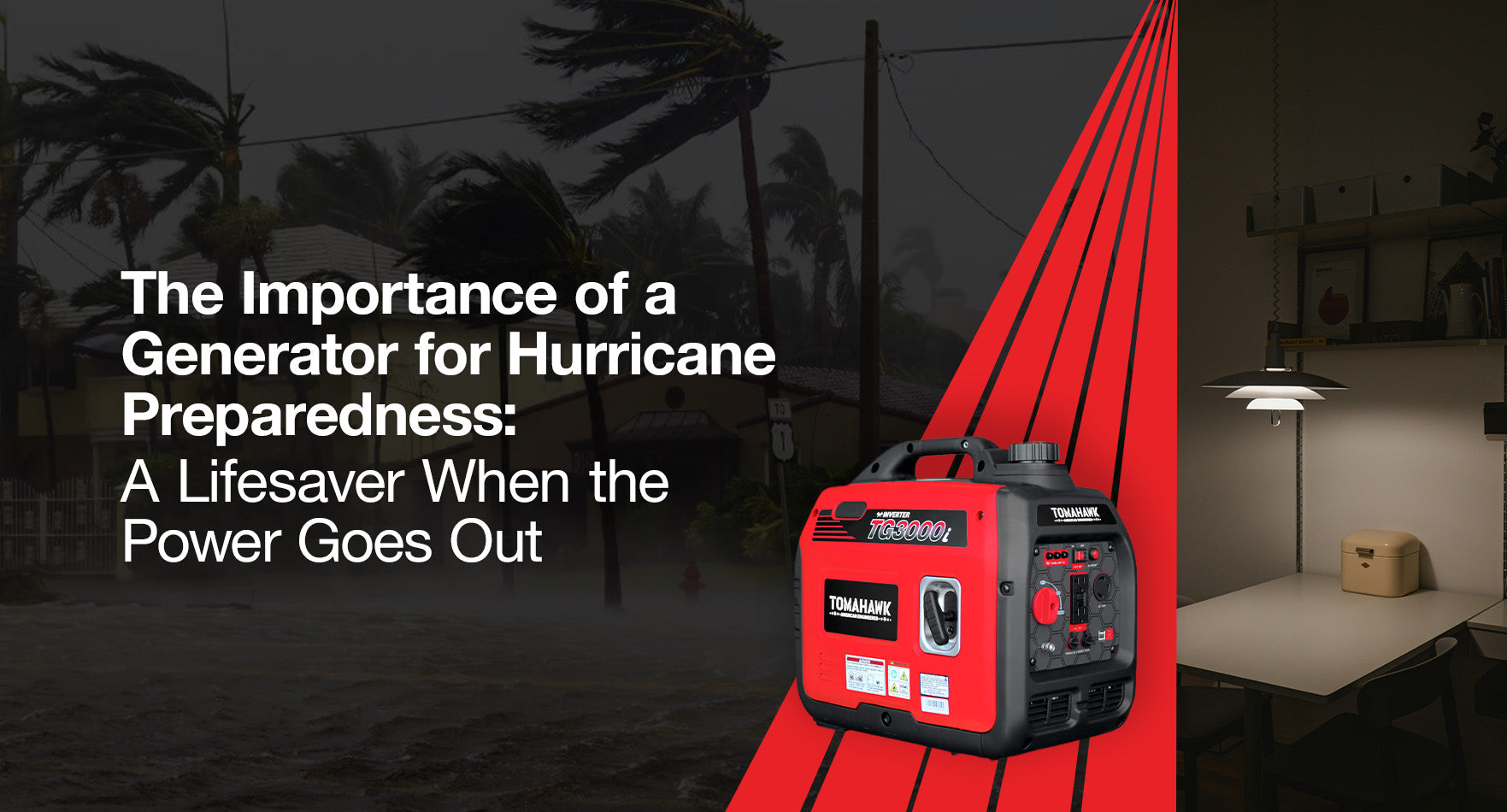When a hurricane strikes, one of the most common and disruptive effects is the loss of power. For hours, days, or even weeks, you could be left without electricity. Having a generator as part of your hurricane preparedness plan can make a huge difference in keeping your family safe and comfortable during and after the storm. Here’s why a generator is essential and how to choose the right one for your needs.
1. Why You Need a Generator During a Hurricane
- Power Outages are Inevitable: Hurricanes often bring down power lines or damage infrastructure, leading to widespread outages. Having a generator ensures you won’t be left in the dark.
- Keep Essential Appliances Running: A generator can power critical appliances like refrigerators, freezers, and air conditioning units, which are vital for food preservation and comfort in high heat and humidity.
- Medical Equipment Backup: If someone in your household relies on medical equipment like oxygen concentrators or CPAP machines, a generator is essential to keep these devices running.
- Communication is Key: Staying informed is critical during a hurricane. A generator ensures your phone, radio, or internet stays charged so you can receive updates on the storm and emergency instructions.
2. Types of Generators for Hurricane Preparedness
- Portable Generators: These are smaller, mobile units ideal for short-term power outages. They can power essential appliances and charge electronics but typically don’t support whole-house electricity. Look for one with at least 5,000 watts for basic needs.
- Standby Generators: For longer outages or if you need more power, a standby generator is the best option. These are permanently installed and automatically start when the power goes out. They can handle large appliances and provide whole-home power, ensuring minimal disruption during an outage.
- Inverter Generators: If you need a quieter, more fuel-efficient option for small electronics or sensitive equipment, an inverter generator is a good choice. They offer stable power for items like laptops or medical devices but typically don’t handle heavy loads like large appliances.
3. Key Features to Look for in a Generator
- Fuel Source: Generators typically run on gasoline, diesel, propane, or natural gas. Choose the fuel type most accessible to you. Propane and natural gas are often more reliable during extended outages, while gasoline is more readily available.
- Wattage: Calculate the wattage needed to power your critical appliances. A portable generator of 5,000 to 7,500 watts can usually power essentials like refrigerators, lights, and small electronics. A standby generator with 10,000 to 20,000 watts is better for whole-home use.
- Safety Features: Look for features like automatic shutoff when carbon monoxide levels are high or low oil indicators. Ensure the generator is placed in a well-ventilated area to avoid carbon monoxide poisoning.
4. Generator Maintenance and Safety
- Regular Maintenance: Keep your generator in good working condition by performing regular maintenance, such as oil changes, fuel filter replacements, and checking spark plugs. Store fuel safely and rotate it regularly if using a gas-powered model.
- Run It Safely: Always place portable generators outside and far away from windows, doors, or vents to prevent carbon monoxide from entering your home. Never use a generator inside a garage or enclosed space.
- Test Before the Storm: Don’t wait until a hurricane is on its way to fire up your generator. Test it before the storm season begins to ensure everything works properly.
5. Additional Benefits of a Generator
- Preserve Comfort in Extreme Weather: With a generator, you can continue to run fans or air conditioning to prevent your home from becoming unbearably hot during a power outage.
- Reduce Spoilage and Save Money: Keeping your refrigerator and freezer running during a power outage prevents food from spoiling, saving you money in food replacement costs.
- Increase Peace of Mind: Knowing that you have a reliable source of power during a storm reduces stress and keeps you and your family feeling secure.
Investing in a generator is one of the most practical steps you can take in your hurricane preparedness plan. It not only ensures you have access to electricity but also keeps essential devices, appliances, and medical equipment functional when you need them most. As hurricane season approaches, now is the perfect time to purchase a generator, learn how to use it, and ensure that your family is ready for anything. Stay safe and be prepared!










